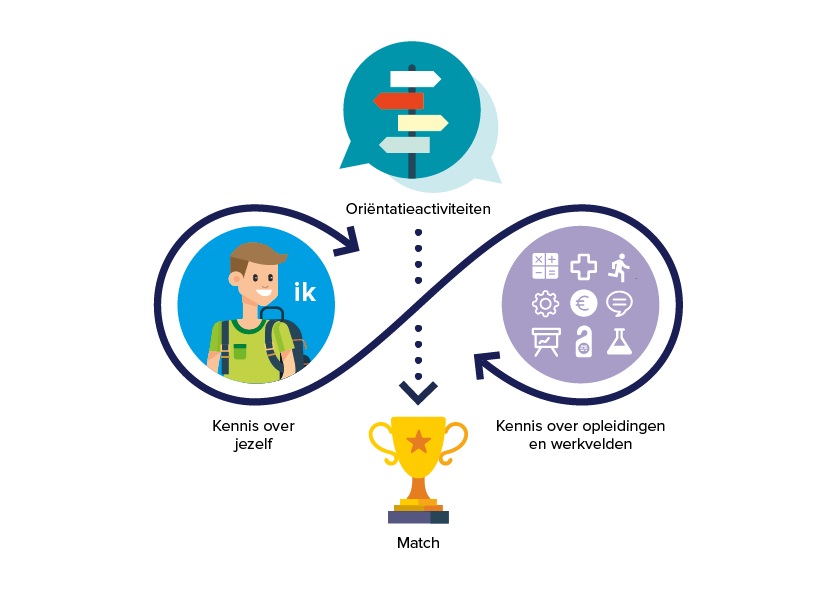Study choice
There are many reasons for changing study direction and every student will have his/her own reasons.You might be considering changing for the following reasons:
- The programme of study is different from your expectations
- The pace of learning is too fast
- The academic level is too high or too low for you
- You are missing your home and friends
- You don’t feel at ease at TU Delft, in the city Delft or at your accommodation
- You have become interested in one particular part of a programme of study and want to specialise in that area
- You are having difficulty coping financially
- You have personal, health or family problems which make it difficult or impossible to continue studying
Any of these reasons can feel overwhelming and each can be a good reason for considering to making a change. There are actions you can take to assist your transition to find either an alternative study or another option that suits your personal needs.
-
It’s important that you don’t panic and rush into making decisions. Give yourself time to reflect, and a chance for things to improve. During this time it’s useful to talk through your concerns. Some people turn to family and friends to share their worries and ask them for advice. It’s also good to know that there are some additional resources at the TU Delft you can turn to for support.
- Contact the academic counsellors at your faculty for personal and study related questions or problems.
- If psychological problems are preventing you from studying effectively the psychologists can provide support.
- You are welcome to contact the Student Counsellors who are experienced in advising students about financial and legal matters.
If you are an international student, making any change to your programme may have implications for your immigration status and the completion of your studies. Please contact the Contact Centre ESA for advice.
-
If you are considering changing courses within TU Delft or at another educational institute the Study Choice Counsellor at the Career Centre can help you think through your options and support your transition in securing your new study choice. Setting your goals and ambitions, and comparing them with a thorough investigation of the options, you will be able to determine if the new study will offer you exactly what you need. You will be helped to search for alternative options.
-
If you are considering leaving your study and seeking employment the Career Centre can help you explore and navigate the job applications processes. You may also wish to check-out other sections of the Career Toolkit for further information.
-
Activity 1: The Roadmap
When looking for a new study, you will probably search the internet for alternative courses. You’ll realise there are many options and your search may become over-whelming. To provide a structure to your search and keep track of your findings you can use the following roadmap.
Activity 2: Determine your energy sources
To help you find out what gives you energy we have an exercise for you. Start by opening this worksheet, then come back for the instructions.
- Read the activities
- Pick eight activities you enjoy doing most.
- Ask yourself, or have someone else ask you these questions:
- Describe your definition of the activity
- What makes it so much fun to do?
- What personal strengths does it bring out in you?
- What role does this activity play in your life at the moment?
- What would you like to do with this activity in the future?
Write your answers down. Review your answers and reflect on the themes/needs you can identify about yourself? For example, are seven out of the eight activities involving you leading others; are you energised when supporting others or is being in control important to you?
You have now identified some criteria’s that are important to you in your daily activities.
Activity 3: Determine your values
Another way of thinking about what is important to you in a new study is to determine your values.
- Read the values on this worksheet
- Pick eight values that matter to you most.
- Prioritise the values
Then discuss and/or describe what they mean to you. If you make the values as distinctive as possible the criteria for choosing a new course will hopefully become clearer.
For assistance in this process, don’t hesitate to come to one of the career counsellors, or join one of the workshops available on this subject.
-
This – Dutch spoken and with English subtitles – YouTube movie is made to inform parents about how they may best guide their children in the process of making a well-educated choice of study programme.
It might be helpful for you as well; it informs you on how to determine the most important criteria, and how to use those criteria to compare and choose between your available options.
WEBINAR: reconsidering your study choice? A structured approach.
Career Conversations Live: Reconsidering your study choice?
1. Figure out what you are looking for
What do you enjoy doing, what are your competences? Take a look in the mirror. What do you see: what are your interests? What makes you happy? What is the source for your energy? What makes you move? What are you really good at? Talk to people who know you well, such as your parents or a close friend. Make a list of you interests, your competences, and your skills. The worksheets Determine your energy sources and Determine your values might be helpful here.
Assignment Energy Sources (PDF) Assignment Values (PDF)4. Compare programmes
Have you found a number of interesting options, then it is time to look at them in more detail. Compare your set of criteria to what they offer. At some universities it is possible to shadow students during a typical day. Talk to students already taking the course and/or graduates. Use the matrix to keep everything you learn structured!
5. Decide
You know what you want and you think you found a programme that fulfils your criteria? Then it's time for a decision. Don’t forget to listen to your gut-feeling: choose what really excites you/what you are really interested in. Are you in doubt? Don’t panic. A gap year, working or travelling often provides new insights. Whatever you do, make sure it is your choice.


